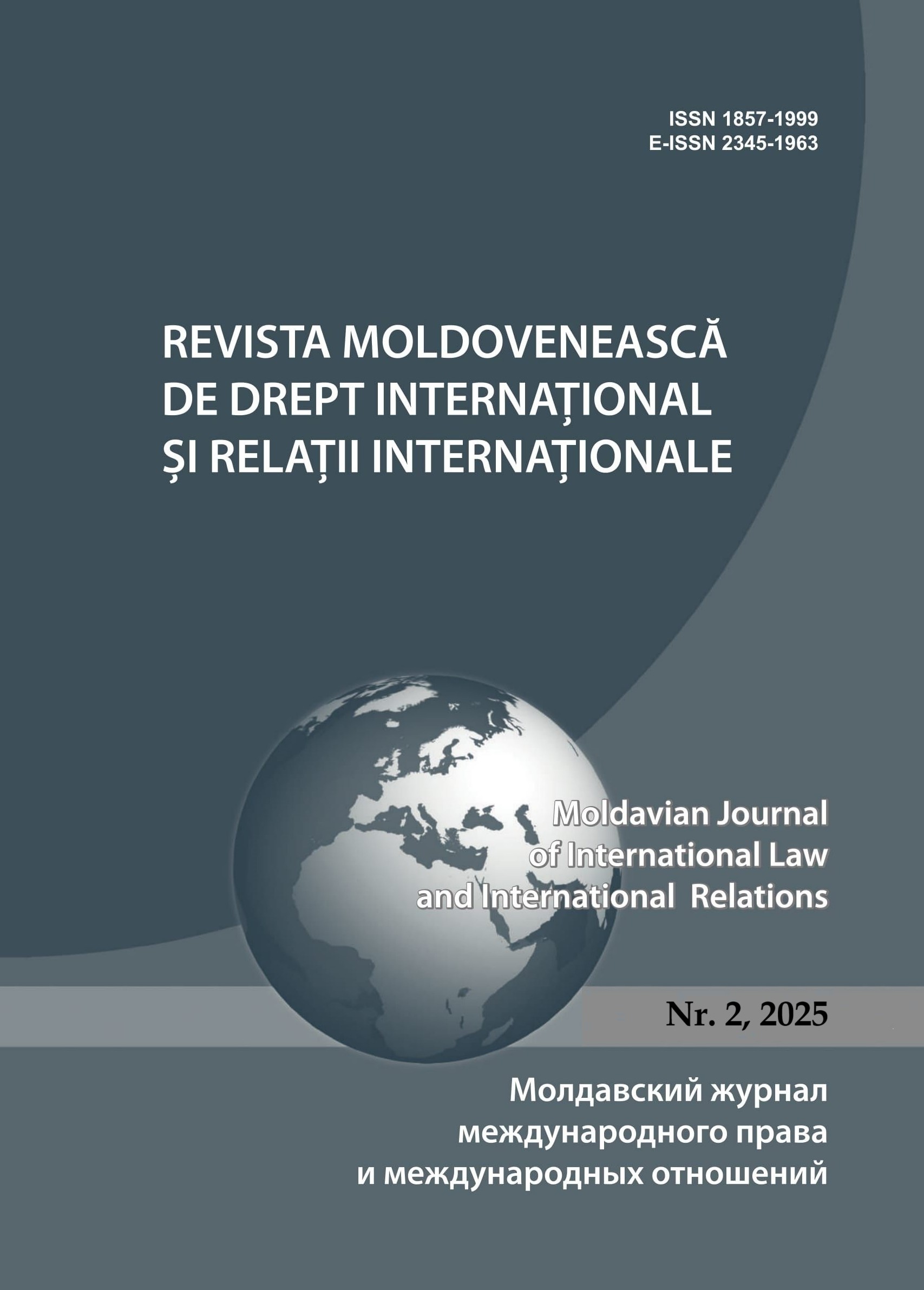Moldavian Journal of International Law and International Relations
FINLAND'S ROLE IN THE EUROPEAN UNION'S FOREIGN POLICY: FROM NEUTRALITY TO NATO MEMBERSHIP
Author: MARGINEANU Elena
JEL Classification: F52, F53
Universal Decimal Classification: 327.7; 355.000.32; 32:355; 341.29.009(100)
DOI: https://doi.org/10.61753/1857-1999/2345-1963/2025.20-2.07
Dr. Mohsen ZAMANI - PhD in Political Geography (Political Organization of Space), University of Tehran, Iran (Tehran, Iran). /
https://orcid.org/0009-0009-6210-2305Email: zamani_m@ut.ac.ir
Keywords: Finland, foreign policy, European Union, NATO, neutrality, European security
Abstract
Finland, as a small but strategically important country in Northern Europe, has always pursued a policy of neutrality as the core of its foreign policy. This policy was adopted during the Cold War to avoid conflicts with the two blocs of East and West, allowing Finland to remain safe from military and political threats. With the end of the Cold War and the dissolution of the Soviet Union, Finland joined the European Union in 1995 and aligned its foreign policy with the values and goals of this organization. However, international crises such as Russia’s annexation of Crimea in 2014 and the war in Ukraine in 2022 led to changes in Finland’s foreign policy. The increasing security threats from Russia, particularly for the Baltic Sea region, prompted Finland to end its traditional neutrality and join NATO in 2023. This paper analyzes the developments in Finland’s foreign policy from neutrality to NATO membership. It explores the internal and external factors influencing the shift in Finland’s foreign policy, its relations with the European Union and NATO, and the impact of these changes on regional security and geopolitical equations. As a new NATO member, Finland will play a more active role in Europe’s security and defense policies in the future. This shift, in addition to strengthening Finland’s national security, will also affect collective security in Europe. On the other hand, Finland’s relations with Russia have entered a complex and sensitive phase, requiring precise and strategic policymaking. In general, the change in Finland’s foreign policy from neutrality to NATO membership reflects significant changes in the security dynamics of Europe following the war in Ukraine. This transformation could serve as a model for other countries in Northern Europe seeking to enhance their security against regional threats.

